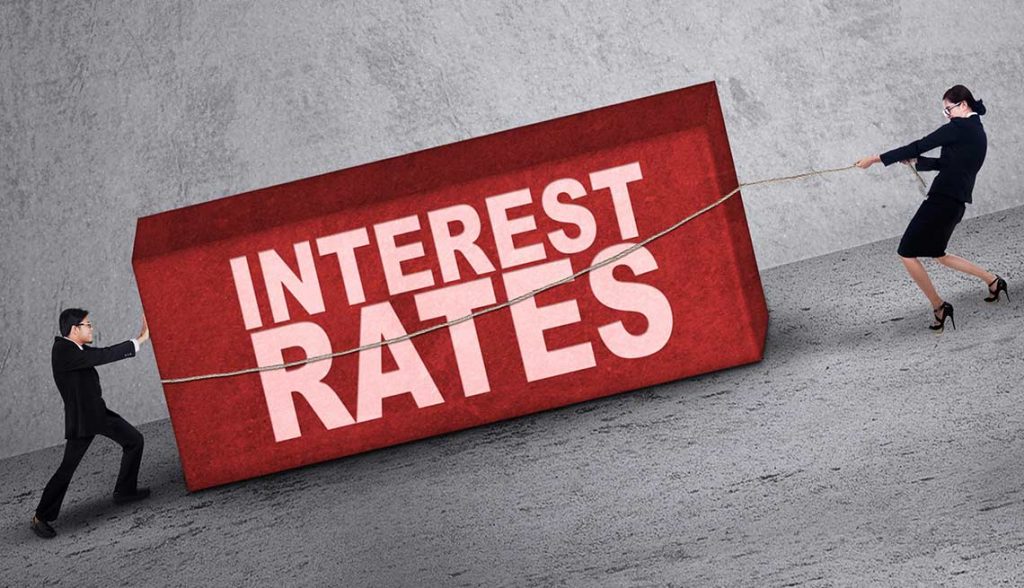For homebuyers across the country, it feels like a never-ending uphill battle. Tight inventory, multiple offers on ‘fixer’ properties, and houses selling for well above the asking price (often tens of thousands over the asking price) - literally everything seems like an insurmountable hurdle. And now, higher interest rates are about to kick in.

The median price for a home in January was $350,300, up 15.4% from a year ago, according to the National Association of Realtors. And that is in the middle of the winter. One of the strong reasons was to lock in interest rates ahead of the Mid-March rate increase by the Federal Reserve that is now considered a foregone conclusion.
The amount that interest rates will increase isn’t known but many experts are anticipating an increase of 25 basis points (meaning that prime interest rates will rise by 0.25% percentage points). Others say a 50 basis point rise is possible to aggressively go after the highest inflation rate that the country has seen in 40 years. Something to be very aware of is that expectations are growing that the interest rate will increase as many as five times this year. If inflation persists, the Federal Reserve will be forced to move aggressively.
To be clear, the Federal Reserve does not directly set the mortgage rate. The federal funds rate, which is set by the central bank, is the overnight interest rate at which banks borrow from one another. This influences the prime interest rate, which is what lenders use to determine how much interest people pay on credit cards, mortgages, and other loans. When the federal funds rate goes up, the prime rate tends to follow.
The Fed does more than just set the fed funds rate. It also gives economic guidance to markets. The trend is that when the Fed makes a press release with a positive outlook for the economy, interest rates tend to rise. When the outlook is negative, interest rates tend to go lower. A 40-year high inflation rate is a very positive outlook that the economy is growing (but way too quickly). Inflation is the enemy of mortgage bonds and, in general, when inflation pressures are growing, mortgage rates follow.
An example that mortgage rates are not in perfect lockstep with the fed rate is that mortgage rates already climbed from 2.67% in January 2021 to above 3% by December. But even that remained in a historically low 3% range throughout the year. What we will soon see is mortgage rates move into the more traditional territory. The problem is that this is on top of all-time highs for home prices. The most reliable predictions are for mortgage rates to reach a range in the mid 4% up to 5% by the end of 2022.
This may be astonishing, but a 3.6% mortgage rate was a record low in 2019. Rates in the mid 4% to 5% are nothing unusual when compared to rates that were 15% and higher in the early 1980s. As recently as 2008, mortgage rates averaged 6.48%. In January 2002 rates were at 8.21%. For most of this century, mortgage rates have swung between the high 4% range and low 7% range.
Even with increases, the still low mortgage rate environment will remain favorable for some potential homebuyers and those still considering refinancing. However, rising home prices plus higher interest rates will eliminate many buyers from the market. Fewer buyers should lead to more stable prices and fewer bidding wars. The refinance market has already seen a 45% decline because most homeowners that could benefit from the historically low mortgage rates have already done so.
Buyers that can lock in a mortgage rate before interest rates increase will save between 0.5% to 1% off their interest rate. With the first interest rate hike coming in mid-March, moving sooner rather than later will be the most beneficial. A 1% jump from 4% to 5% on a $325,000 fixed-rate mortgage makes a $193 difference in the monthly payment ($2,316 per year).
Homeowners with an adjustable-rate mortgage or a home equity line of credit (HELOC) would be wise to refinance into a fixed-rate loan.
Moderate-income buyers who were barely qualified for a mortgage when interest rates were lower will now be unable to afford a mortgage. Even those that had a cushion in qualifying will see it harder to afford a mortgage because their total budget will be impacted by inflation rising all consumer costs.
What do you think the interest rate hikes will do to homebuyers? Please share by leaving a comment.
Also, our weekly Ask Brian column welcomes questions from readers of all experience levels with residential real estate. Please email your questions, inquiries, or article ideas to [email protected].